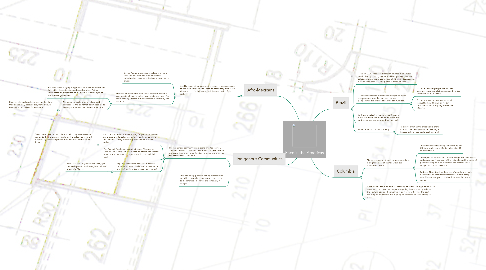
1. Afro-Mexicans
1.1. Just like in any other place on the planet, blacks were seen as less than everyone else. Because of this they were faced with so much discrimination. Until they decided to fight back.
1.1.1. Gaspar Yanga, was an African slave who led a rebellion that freed him from his master. Unfortunately now a days that same town has no blacks
1.1.2. Since the Independence from Spain, Mexico decided to have a national identity called mestizaje (mixed race). This drove not only Africans but many others to invisibility and lost a lot.
1.1.2.1. But now, they are trying to fight back to win some power and help within their education and social services. But mainly why want to be recognized as their own race in the eyes of the Mexican government.
1.1.2.2. Blacks are particularly marginalized and excluded, to the point that it is impossible to find any mention of them in official records.
1.1.2.2.1. Many scholars acknowledge this but they have their doubts only because they think it would be unfair to make laws for each race
2. Indigenous Communities
2.1. The Indigenous communities are being affected in every country in the world. It is unfair since most of these people are losing their lands, lives, freedom to people who just up and moved into THEIR land.
2.1.1. Mapuche land resistance was forcing people to move away, losing their land to outside companies and only owning a small amount, losing medicinal plants needed for their survival.
2.1.1.1. Protest have been put into place to help bring awareness and change to the ownership of the land. The chilean government is repressing Mapuche people from their own lands and their rights.
2.1.2. The Guarani People are losing their lands. They are very spiritual and silent people and because of that don't resort to any sort of violence to stop those trying to steal their land.
2.1.3. Zapatista Movement began as a peasant movement, due to the lack of representation and mistrust from the Mexican government.
2.1.3.1. They went into war, made demands, got demands passed, and brought on a lot of change to Mexico.
2.2. They are being gunned down by ranchers who are taking over a land that doesn't even pertain to the ranchers. Their lives are constantly in danger
3. Brazil
3.1. - The UNESCO-sponsored research develop a new racial revisionism by noticing that race still is a problem, but the solution is integration. Economic mobility and integration into class society. Race was interpreted in terms of class.
3.2. - There were limitations that were brought on by the reappearance. And they are seen by two perspectives, the revisionist and the structuralized.
3.2.1. From the revionist perspective, as Brazil becomes more capitalist it is expected the the racial conflict will diminish.
3.2.2. From the structural perspective, racial inequality should be run by military dictatorship and it is going to be more effective.
3.3. With democratization being brought back to Brazil this meant that more issues would be addressed and change would be imminent.
3.4. Winant's Racial Formation Theory
3.4.1. He believed that as the times would change, so would the ideology and the meaning and the idea behind race would evolve as well.
4. Columbia
4.1. The development of black organizations have brought on a lot of change within the Columbian nation.
4.1.1. They were constantly being influenced by the US, they would quote Martin Luther King JR. and Malcolm X
4.1.2. The impact of constitutional reform recognized “multiethnic and pluricultural” character of the nation helped the cause of people seeking to push blackness into political arena. Indigenous communities won.
4.1.3. Problem: Never involved the mass of people who might be classifies or classifies themselves as blacks; many were illiterate and poor, or subscribed with the mestizo image.
